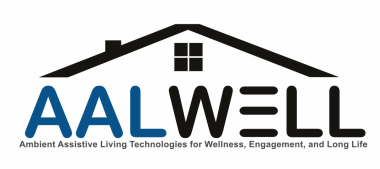Workpackage 3 - User Testing
Lead Investigator: Arlene Astell (United Kingdom)
Team Members: Alex Mihailidis (TRI), Andrew Sixsmith (SFU), Louise Nygard (KI)
Collaborators: AgeUK, Sanctuary Care
For AAL technologies to deliver benefits to older adults, they need to be available at a reasonable cost, easy to obtain and confer benefits that are in line with the person’s own needs preferences and aspirations. This WP focuses on working with older adults to develop and test new methods for evaluating AAL technologies that can be applied across national and cultural groups. These novel methodologies will be used to evaluate the usability, acceptability and usefulness of the AAL-technologies developed in WP2.
Objectives
The aim of this WP is to work collaboratively with older people with MCI to develop novel AAL evaluation techniques and approaches and to use these to test the usability, acceptability and usefulness of the AAL WELL system and applications in real-life situations.
The specific objectives are to:
(i) Develop a novel set of evaluation methodologies for use in different national and cultural contexts
(ii) Evaluate the novel technology developed in WP2 in response to the user needs prioritized in WP1 in respect of maintaining everyday activities and cognitive stimulation.
(iii) Examine the impact of the novel AAL-based systems and services developed in WP2 on the well-being and independence of older adults with MCI.
(iv) Add to knowledge about how older adults make decisions about adopting and using novel technology and how they go about incorporating it into their lives.
Deliverables
This Workpackage will deliver the following:
(i) A manual of novel AAL evaluation methods, including a step-by-step guide to research instruments and procedures
(ii) Evaluation reports on the impact of AAL-WELL technology in key areas: self-management, cognitive activity and social participation.
(iii) Report on how older adults incorporate, adopt and use novel technologies in their everyday lives.
Innovations
This work package uses a novel combination of experimental, observational and qualitative methods to evaluate technologies developed within the project. Conducting the evaluation in the homes of participants in three countries will illuminate the similarities and differences in the barriers to adoption of technology across ageing populations. The WP will demonstrate the potential of using technological supports to have a positive impact on the independence of people with MCI. Our evaluation will also illuminate the attitudes of older adults with and without cognitive impairment, across cultural and national groups, and the ease and comfort with which they take to the new technologies. Given the intention to develop infrastructure that can support active and healthy aging in place, with the explicit intention to be responsive to changes over time, this is particularly important to understand.
Team Members: Alex Mihailidis (TRI), Andrew Sixsmith (SFU), Louise Nygard (KI)
Collaborators: AgeUK, Sanctuary Care
For AAL technologies to deliver benefits to older adults, they need to be available at a reasonable cost, easy to obtain and confer benefits that are in line with the person’s own needs preferences and aspirations. This WP focuses on working with older adults to develop and test new methods for evaluating AAL technologies that can be applied across national and cultural groups. These novel methodologies will be used to evaluate the usability, acceptability and usefulness of the AAL-technologies developed in WP2.
Objectives
The aim of this WP is to work collaboratively with older people with MCI to develop novel AAL evaluation techniques and approaches and to use these to test the usability, acceptability and usefulness of the AAL WELL system and applications in real-life situations.
The specific objectives are to:
(i) Develop a novel set of evaluation methodologies for use in different national and cultural contexts
(ii) Evaluate the novel technology developed in WP2 in response to the user needs prioritized in WP1 in respect of maintaining everyday activities and cognitive stimulation.
(iii) Examine the impact of the novel AAL-based systems and services developed in WP2 on the well-being and independence of older adults with MCI.
(iv) Add to knowledge about how older adults make decisions about adopting and using novel technology and how they go about incorporating it into their lives.
Deliverables
This Workpackage will deliver the following:
(i) A manual of novel AAL evaluation methods, including a step-by-step guide to research instruments and procedures
(ii) Evaluation reports on the impact of AAL-WELL technology in key areas: self-management, cognitive activity and social participation.
(iii) Report on how older adults incorporate, adopt and use novel technologies in their everyday lives.
Innovations
This work package uses a novel combination of experimental, observational and qualitative methods to evaluate technologies developed within the project. Conducting the evaluation in the homes of participants in three countries will illuminate the similarities and differences in the barriers to adoption of technology across ageing populations. The WP will demonstrate the potential of using technological supports to have a positive impact on the independence of people with MCI. Our evaluation will also illuminate the attitudes of older adults with and without cognitive impairment, across cultural and national groups, and the ease and comfort with which they take to the new technologies. Given the intention to develop infrastructure that can support active and healthy aging in place, with the explicit intention to be responsive to changes over time, this is particularly important to understand.
